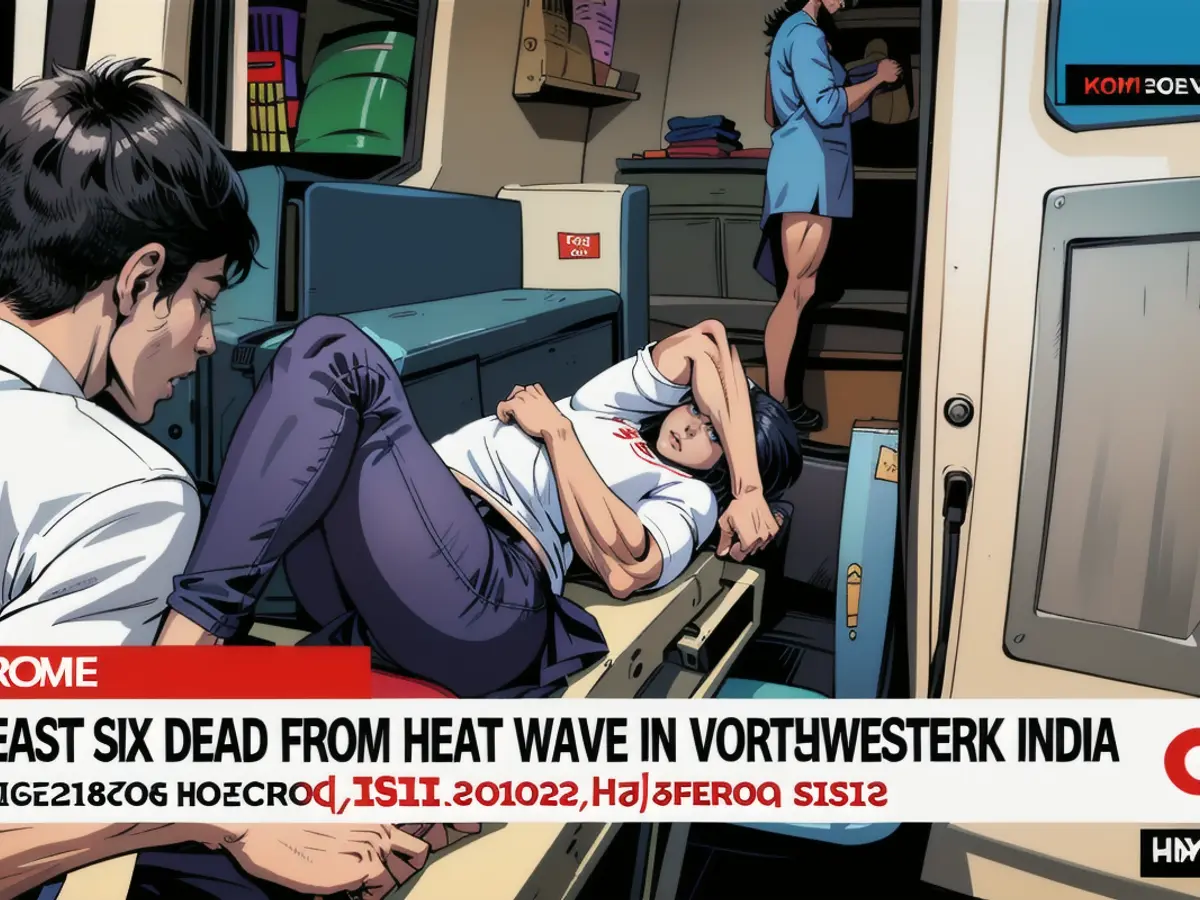A heat wave claiming the lives of at least 33 election officials concludes India's election in scorching temperatures.
The grim news was shared by Navdeep Rinwa, the chief election officer in the northern state of Uttar Pradesh, during a press briefing: Workers lost their lives within the same region during this time. Their families will be receiving a total of $18,000 each as financial aid.
India has witnessed an unusually intense heat wave for an extended period in the northern part of the country as it held general elections that started on the 19th of April and concluded on the 1st of June. A reported 61 individuals have succumbed to heatstroke, exhaustion, dehydration, and other heat-related ailments since mid-May. Out of these unfortunate deaths, 43 were election workers, per official numbers.
India’s public sector workers must fulfill their election duties, and they are assigned by the election commission before voting commences.
Officially, there are over 1.4 billion people in India, and nearly 969 million were eligible to vote - as many as the combined populations of North America and the European Union.
As per election rules, voters should be less than 2 kilometers (or 1.24 miles) from a polling station.
The sheer magnitude of conducting such a massive election requires a dedicated team of 15 million polling officials and security staff. Some of these workers have to travel domestically, using modes of transport like roads, boats, camels, trains, and even helicopters to reach the voters scattered across the country.
The province of northwest and central India has recently experienced temperatures as high as 42 degrees Celsius (107.6 Fahrenheit), with some locations scaling the scorching 50-degree mark (122 Fahrenheit), according to the Indian Meteorological Department (IMD).
Recently, the nation's capital, Delhi, sweltered in a record-breaking 49.9 degrees Celsius (121.8 degrees Fahrenheit), prompting the authorities to implement water rationing.
In preparation for the heat waves, the Election Commission of India had implemented a few provisions, including making water available at polling stations and setting up tents for providing shade. The IMD announcing that the heat wave in Northern, Central, and Eastern India is likely to persist, albeit with reduced intensity in the next three days.
According to the Intergovernmental Panel on Climate Change, India is among the worst nations that will likely suffer from the climate crisis. This situation risks impeding India’s development and potentially reversing its advancement in poverty alleviation, healthcare, and economic expansion.
Heatwaves usually occur across India during the months of May and June; however, in recent years they have arrived earlier and lasted longer. Experts predict that climate change will lead to more frequent and prolonged heatwaves, thus challenging India's ability to adapt accordingly.
On the 4th of June, the counting process will conclude, and the results are expected to be announced on the same day.

Read also:
Despite the challenges posed by the heat wave, India continues to be a significant player on the world stage, with over 1.4 billion people and nearly 969 million eligible voters. This global power experienced an unusually intense heat wave during its election period, causing numerous deaths, including election officers, and necessitating financial aid for their families.







